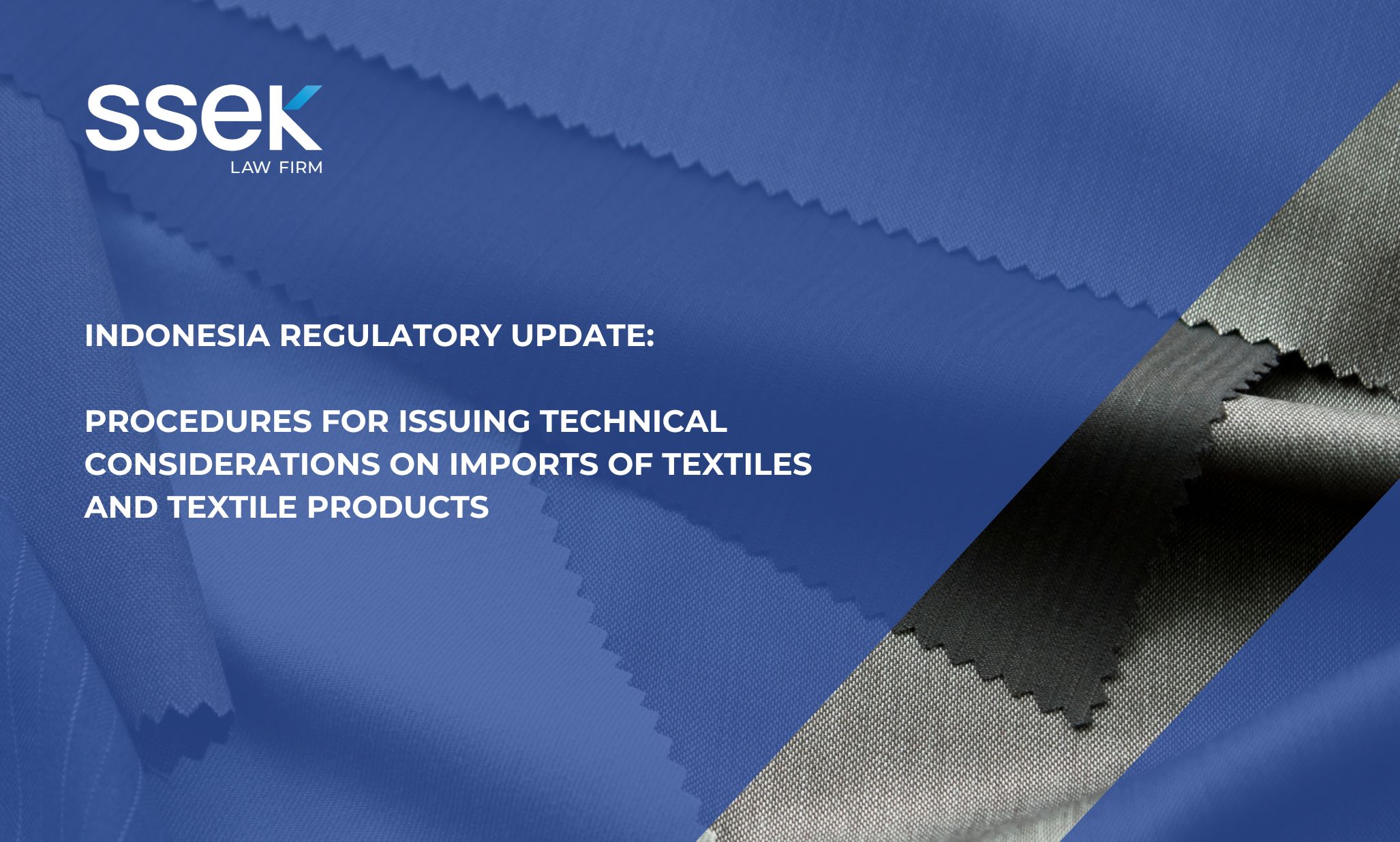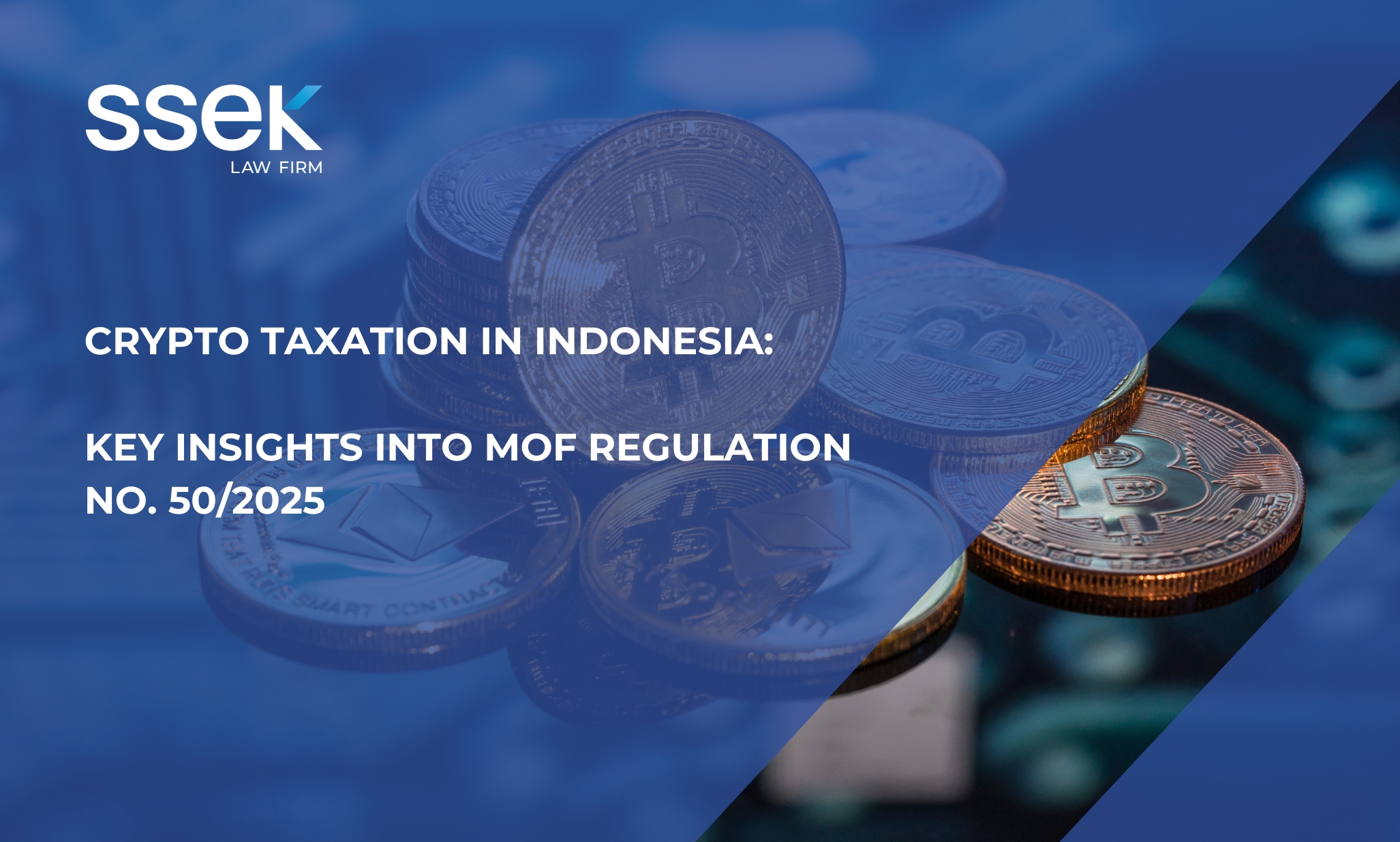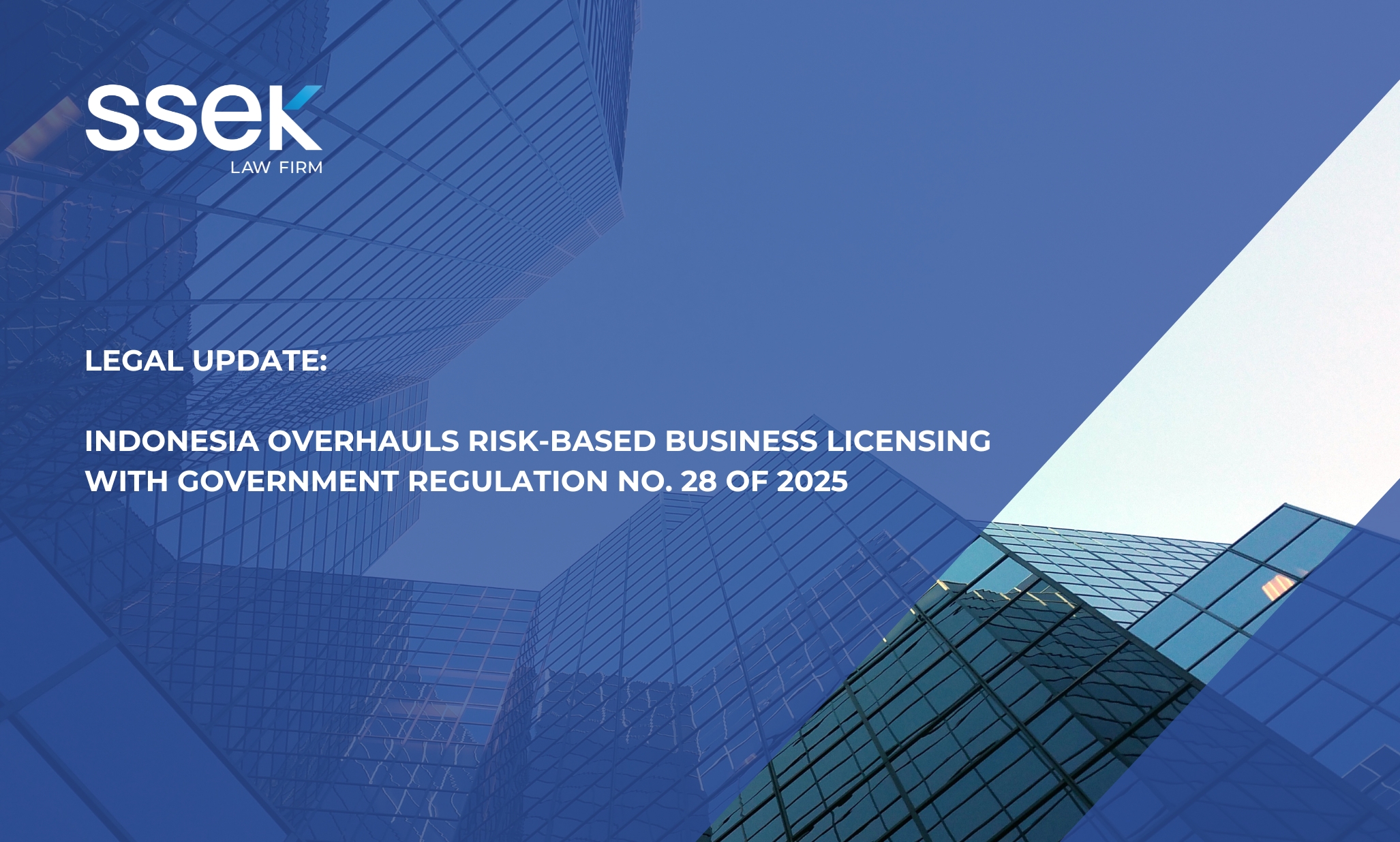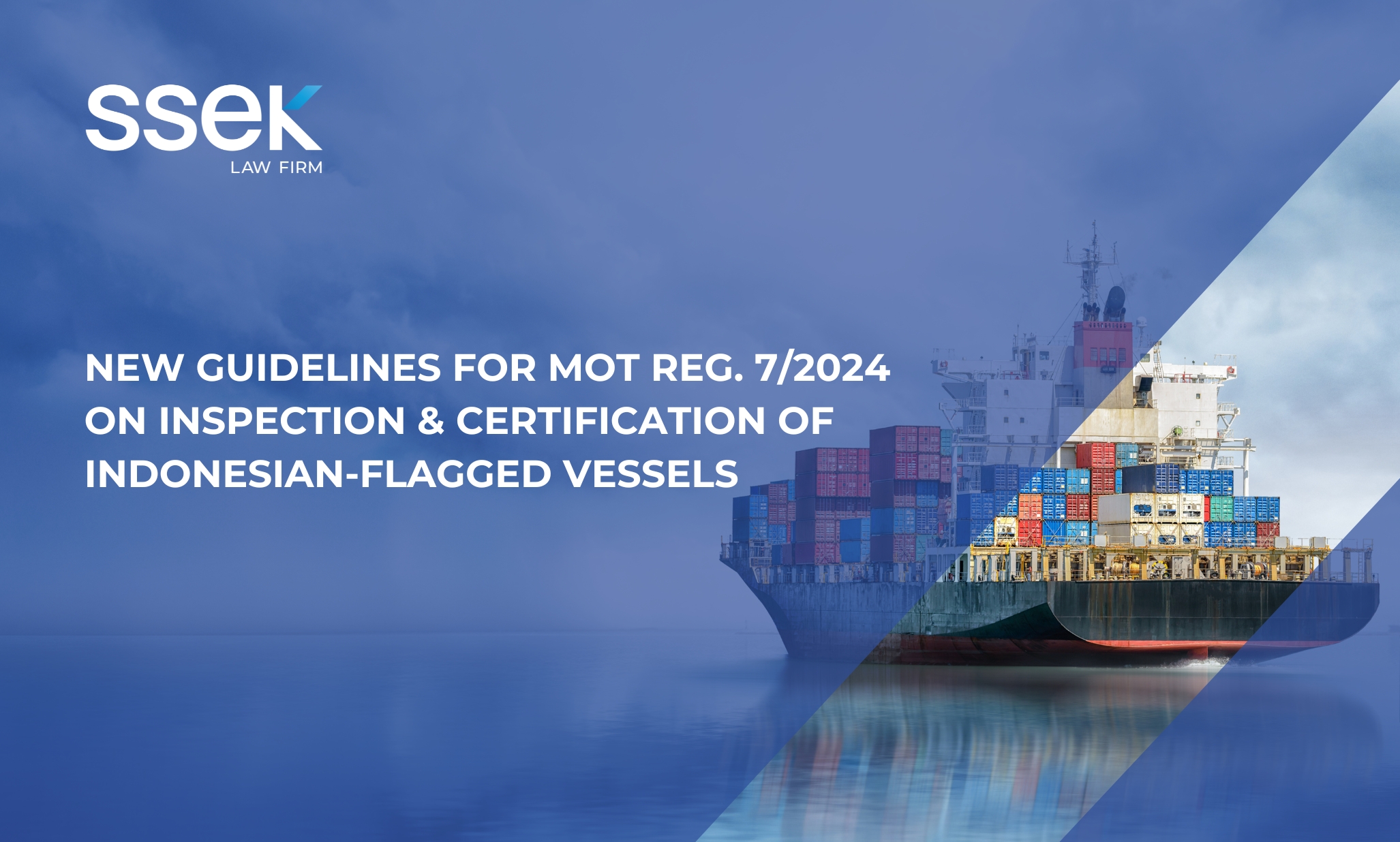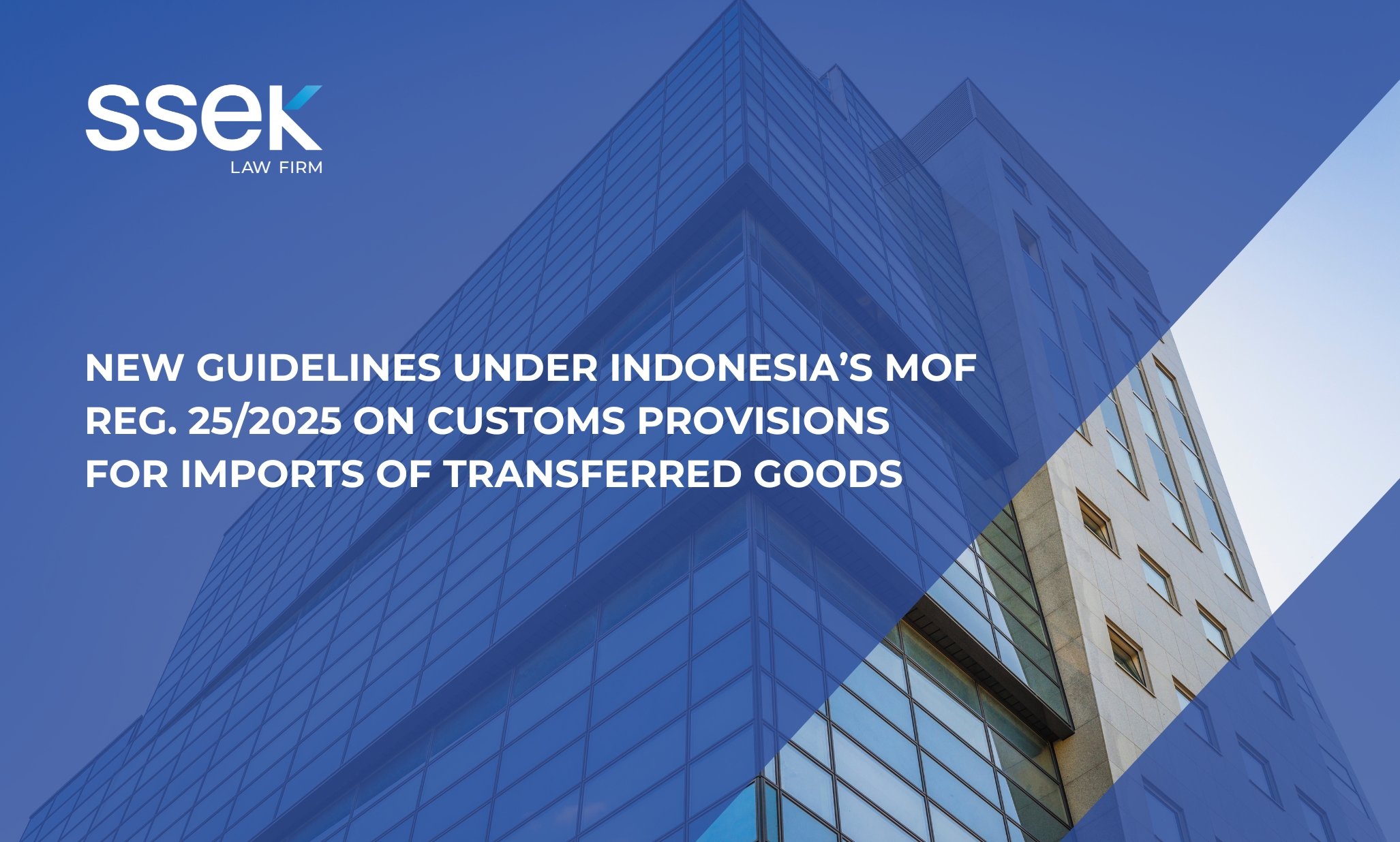


Indonesia’s Minister of Finance (“MOF”) has issued Regulation No. 25 of 2025 on Customs Provisions for Imports of Transferred Goods (“MOF Reg. 25/2025”) to modernize the customs service system. This regulation is intended to improve public services and supervision, strengthen legal certainty and promote greater transparency and accountability.
MOF Reg. 25/2025 replaces MOF Regulation No. 28/PMK.04/2008 (“MOF Reg. 28/2008”) on the Exemption of Import Duty on Personal Effects. Through this reform, the Directorate General of Customs and Excise seeks to provide fair, transparent, and professional services while strengthening public trust in government administration.
The new regulation sets out key provisions on the definition and scope of transferred goods, procedures for exemption from import duties, technical implementation guidelines, and measures to strengthen supervision and services. Enacted on 28 April 2025, MOF Reg. 25/2025 establishes uniform treatment for both Indonesian citizens returning from abroad and foreign nationals relocating to Indonesia.
Key Changes and Provisions
Under the previous regulation, the requirements for transferred goods were not explicitly detailed. Article 5 of MOF Reg. 28/2008 simply stipulated that to obtain an import duty exemption, the owner was only required to submit an Import Customs Declaration to the customs office, attaching a detailed list of the goods (including quantity, type, and estimated customs value), and a copy of their passport.
By contrast, MOF Reg. 25/2025 introduces a more structured licensing process. Importers must now submit an Import Customs Declaration in the form of a Special Imported Goods Notification (Pemberitahuan Impor Barang Khusus or “PIBK”) to the customs office at the place of entry. The PIBK may be filed by the importer directly or through a family member, the government institution where the importer is employed, a postal operator, or a brokerage company, provided that the filing is supported by a valid power of attorney.
The PIBK must be submitted electronically through the Customs Service Computer System (“SKP”), accompanied by the following supporting documents:
- a copy of the relevant section of the travel document of the person relocating;
- documents evidencing compliance with the requirements for household goods;
- documents evidencing compliance with prohibitions and/or restrictions;
- a detailed list of the type, quantity, value/estimated value, and condition of the imported goods;
- a power of attorney, if the PIBK is submitted by an authorized representative; and
- supplementary customs documents or other relevant documents.
In addition, the new regulation introduces a formal review procedure for household goods imports. The head of the customs office is responsible for reviewing the PIBK to verify compliance with the requirements for household goods, the completeness of the documents, and consistency between the PIBK data and the supporting documents. The head of the customs office may also request a memorandum of clarification through the SKP.
The head of the customs office will process the PIBK by issuing a registration number and date through the SKP, followed by the assignment of a Customs Officer to conduct the customs inspection. This inspection consists of both a physical examination of the goods and a review of the supporting documents. The Customs Officer will issue a notification memorandum regarding the physical inspection to the importer or its proxy, after which the importer must prepare the goods for inspection.
In addition to the physical examination, the document review includes an assessment of the inspection results and an evaluation of the reasonableness of the type and/or quantity of goods. This assessment takes into account factors such as the condition of the imported goods, the number of individuals relocating, and the profile of the relocating person, among other considerations.
Based on the outcome of this review, the Customs Officer may:
- determine the applicable tariff and customs value of the imported goods and calculate the corresponding import duties and taxes; or
- issue a ruling that the goods fall withing the category of prohibited and/or restricted items.
If the Customs Officer confirms the determination of tariff and customs value, a payment document will be issued through the SKP. Once payment has been made, the SKP will generate a Customs Clearance Approval Letter (Surat Persetujuan Pengeluaran Barang or “SPPB”).
Implications for Importers of Transferred Goods
The new regulation requires importers of removal goods to exercise greater diligence in preparing documents and in utilizing the electronic system (SKP) at every stage of the process. Importers must ensure that travel documents, detailed lists of goods, and documents demonstrating compliance with prohibitions and restrictions are complete and accurate.
The introduction of more detailed physical and documentary inspections also requires importers to be transparent, disciplined, and fully prepared for verification. In other words, this regulation encourages importers to adopt a more organized administrative system, maintain strict compliance, and actively coordinate with Customs authorities to ensure that the importation process proceeds smoothly and without obstacles.
Conclusions and Recommendations
The implementation of MOF Regulation No. 25 of 2025 makes the process of importing removal goods more stringent and fully electronic through the SKP system. This requires importers to exercise greater discipline in preparing documents and fulfilling regulatory requirements.
To avoid potential obstacles, importers are advised to:
- Prepare the required documents at an early stage;
- Ensure the completeness and accuracy of all submissions uploaded into the system, and
- Provide a valid power of attorney when acting through a representative.
This publication is intended for informational purposes only and does not constitute legal advice. Any reliance on the material contained herein is at the user’s own risk. All SSEK publications are copyrighted and may not be reproduced without the express written consent of SSEK.




